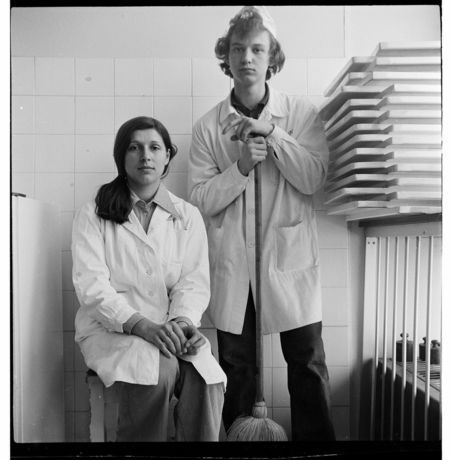On January 29, the Blinken OSA Archivum organized a workshop at its Budapest headquarters with sociologists and other social scientists—teachers, students, and researchers—exploring the possibilities of using the Mihály Csákó Personal Papers in education and research. Participants included senior staff and students from the Eötvös Loránd University’s Faculty of Social Sciences and the Centre for Social Sciences. The workshop was moderated by Iván Székely, Senior Research Fellow and Counsellor at the Blinken OSA Archivum.
Csákó was an outstanding Hungarian sociologist and university professor, a prominent member of the democratic opposition; his legacy was donated to the Archivum by his last employer, the John Wesley Theological College. The exceptionally rich material, which covers Csákó’s teaching, research, and public activities, has been described in detail by the Archivum staff, processed and recently made publicly available for research.
The collection includes, among other things, extensive longitudinal studies on the views of students in vocational training institutions, the political socialization of secondary-school students, interviews with prominent figures in Hungarian computerization, studies on education for democracy, and documents of the students’ grassroot movement, the Students’ Independent Parliament. The trade union movement of the regime change era, of which Csákó was a founder and internationally known representative, can be explored in depth through the study of the documents.
The collection includes a series of images by the photographer Gusztáv Hámos, taken as part of a survey of apprentices. The photos were presented by Senior Audiovisual Archivist Zsuzsa Zádori.
As a complementary collection, Endre Sik presented the secret service documents he donated to the Archivum, which reflect the surveillance and seizure by the police of the records of MUKI, an illegal employment agency operated in Mihály Csákó’s apartment, helping intellectuals who were fired for their views.
The workshop participants identified a number of research topics that could be used in both undergraduate and doctoral studies, discovering opportunities for active social science researchers. It is anticipated that the workshop will result in the addition of new researchers to the Archivum’s visitor base.


